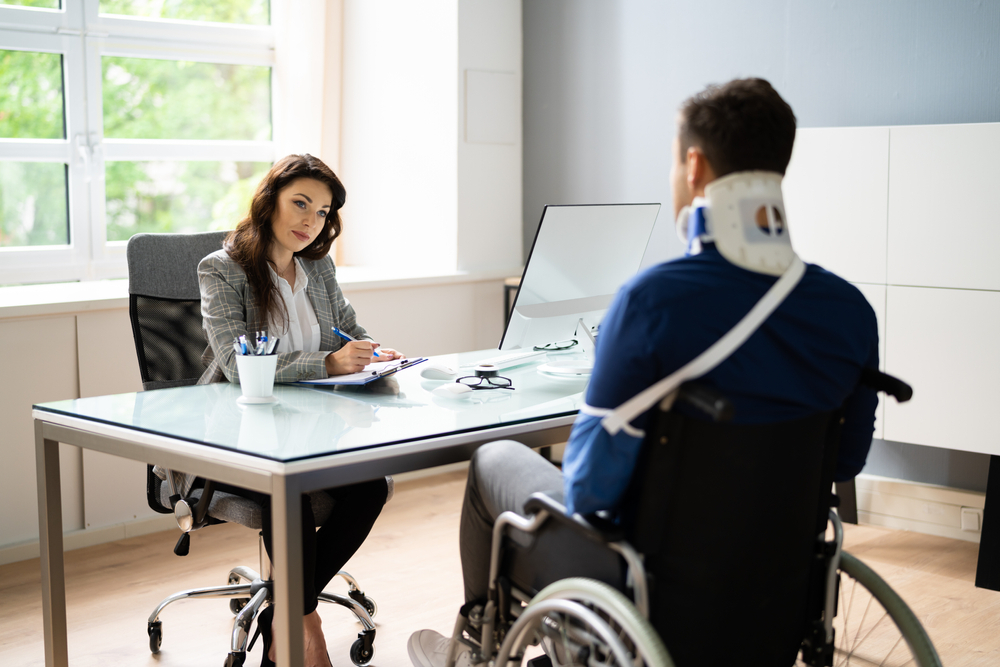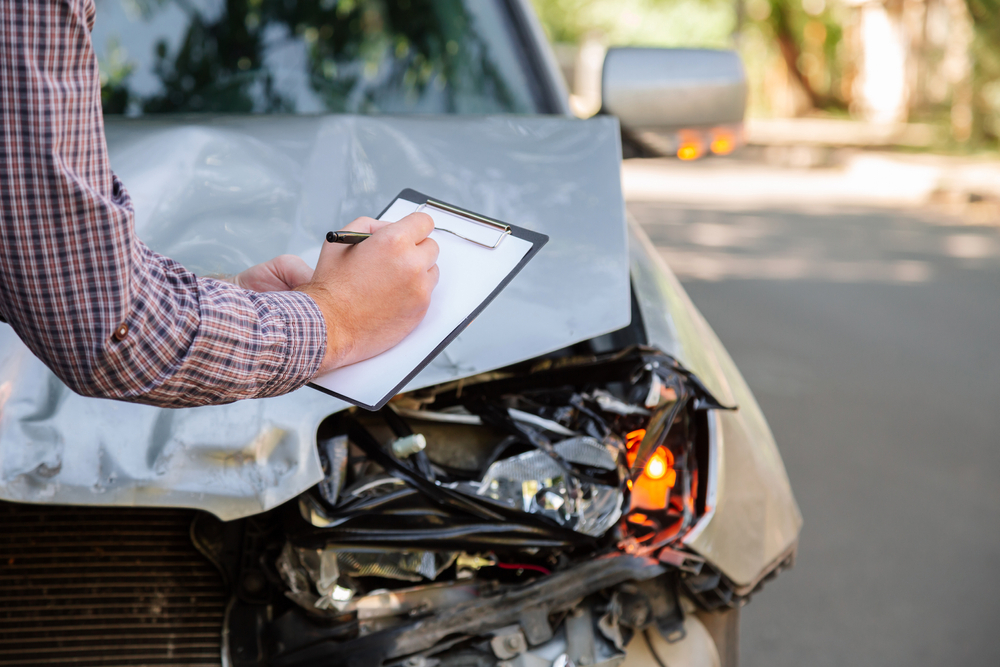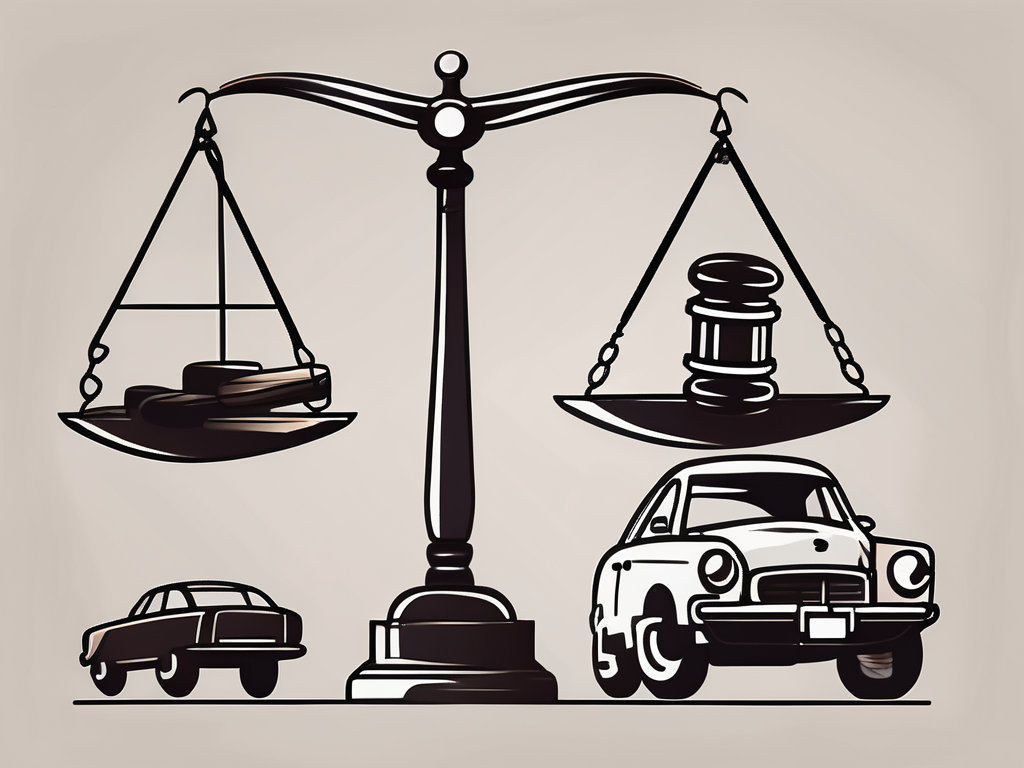Introduction: Choosing the Right Personal Injury Lawyer in Tucson, AZ
When you’re faced with the daunting task of navigating the legal aftermath of a personal injury in Tucson, AZ, securing a competent lawyer isn’t just a necessity—it’s a game-changer. The legal representation you choose holds significant sway over the trajectory and outcome of your case. A proficient personal injury lawyer not only understands the intricacies of Arizona law but also possesses the negotiation skills to ensure that your rights are protected and that you receive the compensation you deserve. In this guide, we’ll explore why finding the right legal advocate in Tucson is crucial and how their expertise can dramatically influence the results of your case.
Understanding Personal Injury Law in Tucson
Personal injury law, a critical component of civil law, is designed to provide a legal framework for individuals seeking compensation for injuries sustained due to someone else’s negligence or intentional actions. In Tucson, as in the rest of Arizona, this area of law ensures that victims can pursue damages for the physical, emotional, and financial hardships they have endured.
Common Types of Personal Injury Cases in Tucson
Tucson sees a variety of personal injury cases, each presenting unique challenges and requiring specific legal knowledge. Here are the most common types:
- Auto Accidents: These are among the most frequent causes of personal injury claims in Tucson. Given the busy roads and highways in the area, collisions can often result in significant injuries, necessitating legal action to recover costs associated with medical care, lost wages, and other damages.
- Slip and Falls: Property owners in Tucson are legally obligated to keep their premises safe. Slip and fall accidents typically occur when this duty is breached, such as through wet floors without proper signage, uneven sidewalks, or poor lighting.
- Medical Malpractice: This involves cases where healthcare professionals fail to provide the standard of care expected, leading to injury or worsening of conditions. Examples include surgical errors, misdiagnosis, and improper treatment.
Understanding these types and how they are handled legally in Tucson can significantly impact the approach and success of a personal injury claim.
Why You Need a Specialized Personal Injury Lawyer
Navigating a personal injury case involves more than just filing paperwork. The complexities and nuances of these cases require a lawyer who is not only knowledgeable in general law but specializes in the specific challenges and details of personal injury law.
The Complexities of Personal Injury Cases
Personal injury cases in Tucson involve multiple layers of legal proceedings, from understanding the specific statutes of Arizona law to handling the intricacies of evidence gathering. For instance, these cases often hinge on the concept of negligence, which requires proving that the other party had a duty to ensure safety, breached that duty, and caused harm as a result. Additionally, there are strict timelines known as statutes of limitations that dictate when a claim must be filed. Navigating these aspects demands a deep understanding and experience that only a specialized lawyer can provide.
Benefits of Hiring a Specialized Personal Injury Lawyer
Opting for a lawyer who specializes in personal injury law offers several distinct advantages:
- Expert Guidance on Legal Strategies: These lawyers bring a wealth of experience and knowledge specific to personal injury law, which enables them to craft effective strategies tailored to the unique aspects of your case.
- Negotiation Skills: Personal injury lawyers are skilled negotiators who can deal with insurance companies and opposing counsel effectively. They know how to advocate for the best possible settlement, often securing compensation that far exceeds what clients might obtain on their own.
- Trial Readiness: While many personal injury cases settle out of court, a specialized lawyer is always prepared to take your case to trial if necessary. Their expertise ensures that they are formidable opponents in the courtroom, ready to present your case compellingly.
- No Upfront Costs: Most personal injury lawyers work on a contingency fee basis, meaning they only get paid if you win your case. This aligns your interests with theirs and allows you to pursue your claim without financial risk.
By hiring a lawyer who specializes in personal injury law, you ensure that your case is handled with the expertise and attention it deserves, thereby increasing your chances of a favorable outcome.
Preparing to Search for a Lawyer in Tucson
Before you begin your search for a personal injury lawyer in Tucson, it’s essential to prepare adequately. Gathering the right information and understanding the importance of timing can greatly influence the effectiveness of your legal representation and the outcome of your case.
Information to Gather About Your Personal Injury Case
To ensure that your initial consultations are as productive as possible, here’s what you need to compile:
- Detailed Account of the Incident: Write down everything you remember about the incident, including the date, time, location, and how the events unfolded. Include any details that might seem minor; often, small details can have significant legal implications.
- Medical Records and Expenses: Collect all medical records related to the injuries you sustained, including hospital visits, treatments, medications, and rehabilitation. Also, keep a detailed account of all related expenses, as these will be crucial for calculating damages.
- Photographic Evidence: If possible, gather photos of the accident scene, your injuries, and anything else that might help illustrate what happened.
- Witness Information: If there were any witnesses to the incident, try to get their contact information and a brief account of what they saw.
- Insurance Information: Have all relevant insurance information ready, including your own and any involved parties’ insurance details.
Importance of Acting Promptly: Arizona’s Statute of Limitations
In Arizona, personal injury claims are bound by a statute of limitations, which generally allows victims two years from the date of the injury to file a lawsuit. Failing to act within this timeframe typically results in losing your right to sue for damages.
Acting promptly is crucial for several reasons:
- Preservation of Evidence: Over time, evidence may deteriorate or be lost, and witnesses’ memories may fade. Early action helps preserve this crucial information.
- Immediate Legal Guidance: Early consultation with a lawyer can help prevent you from taking steps that might undermine your case, such as inadvertently admitting fault or settling for a low insurance offer.
- Stress Reduction: Dealing with legal proceedings can be stressful. Getting a lawyer on board early can alleviate some of this stress, allowing you to focus more on your recovery.
By gathering the necessary information and acting swiftly, you position yourself strongly as you enter the legal process. This preparation not only facilitates a smoother attorney-client relationship but also enhances your chances of securing a just compensation for your injuries.
How to Start Your Search for a Personal Injury Lawyer in Tucson
Finding the right personal injury lawyer in Tucson can feel overwhelming, but knowing where to look and how to use available resources can simplify the process. Here’s how you can effectively start your search.
Where to Look for Personal Injury Lawyers in Tucson
- Online Directories: Websites like Avvo, FindLaw, and Justia offer comprehensive directories where you can find listings of personal injury lawyers in Tucson. These platforms often include lawyer profiles, areas of specialization, and client reviews, which can help you make an informed decision.
- Local Bar Association: The Pima County Bar Association provides a lawyer referral service which is an excellent resource. They can help you connect with personal injury lawyers who are vetted and meet specific professional standards.
- Recommendations from Friends and Family: Sometimes, the best recommendations come from your personal network. If you know someone who has dealt with a personal injury case, ask them about their lawyer and whether they would recommend their services.
- Google Search: A simple Google search can also yield useful results. You can read through the law firms’ websites, check their expertise, and review client testimonials.
Tips on Using Lawyer Referral Services
Using a lawyer referral service offered by the local bar association can be particularly helpful. Here are a few tips on making the most of these services:
- Specify Your Needs: When you contact the referral service, be clear about the type of lawyer you are looking for. Mention that you need a specialist in personal injury law to ensure you get referrals who are most relevant to your case.
- Ask About Consultation Fees: Some lawyers may offer a free initial consultation, while others might charge a fee. Be sure to ask about this upfront when using a referral service.
- Prepare Your Questions: Before meeting with a lawyer from a referral, prepare a list of questions. This could include queries about their experience, approach to similar cases, and expected fees and case management.
- Check for Qualifications and Experience: Ensure that the lawyers you are referred to have the necessary qualifications and experience, particularly in personal injury law and with cases similar to yours.
By using these resources and tips, you can streamline your search for a qualified personal injury lawyer in Tucson, ensuring you find someone well-suited to handle your case and advocate effectively on your behalf.
Evaluating Potential Lawyers: Credentials and Experience
Once you’ve gathered a list of potential personal injury lawyers in Tucson, the next crucial step is to evaluate their credentials and experience. This due diligence ensures that you select a lawyer who is not only qualified to handle your case but also has a proven track record of success in personal injury law.
Check Credentials and Legal Certification
- Arizona State Bar Certification: Ensure that any lawyer you consider is certified by the Arizona State Bar. This certification confirms that the lawyer is legally authorized to practice law in Arizona. You can verify this by checking the State Bar of Arizona’s official website, which also provides information on the lawyer’s disciplinary history, if any.
- Special Certifications or Accreditations: Some lawyers may have additional certifications in personal injury law, such as being a certified specialist recognized by professional legal organizations. These certifications are indicators of advanced knowledge and specialization in personal injury law, setting them apart as experts in the field.
Assess Experience in Personal Injury Cases
When evaluating potential lawyers, consider the following aspects of their experience:
- Relevant Case Experience: Look for a lawyer who has handled cases similar to yours. If your case involves specific circumstances, like a medical malpractice claim or a complex auto accident involving multiple parties, it’s crucial to choose a lawyer with experience in those particular areas.
- Success Rate and Case Outcomes: Inquire about the lawyer’s track record with personal injury cases. While past performance isn’t always indicative of future results, a history of favorable settlements or verdicts can signal a strong ability to successfully navigate similar cases.
- Years of Practice: The number of years a lawyer has been practicing can provide insights into their level of experience and familiarity with the local legal environment. Experienced lawyers are likely to have well-established relationships within the legal community and a deep understanding of the nuances of Arizona personal injury law.
- Client Testimonials and Reviews: Client feedback can offer valuable perspectives on a lawyer’s effectiveness, communication style, and professionalism. Websites, social media, and Google reviews can be good sources of such information.
- Engagement in Professional Associations: Lawyers actively involved in professional associations may have better access to resources, ongoing education, and peer networks, which can contribute to their capability in handling complex legal issues.
By thoroughly evaluating each lawyer’s credentials and specific experience in personal injury law, you can better ensure that the person representing you will have the expertise necessary to achieve the best possible outcome for your case. This careful selection process helps establish a foundation of trust and confidence in your legal representation.
Read Reviews and Testimonials: Gauging Reputation and Reliability
When selecting a personal injury lawyer in Tucson, client reviews and testimonials play a crucial role in understanding the lawyer’s effectiveness and client satisfaction. Additionally, peer reviews offer insights into the lawyer’s professional reputation within the legal community. Here’s how to find and interpret these sources of feedback.
Finding and Interpreting Client Reviews and Testimonials
- Where to Look:
- Law Firm Websites: Many lawyers and law firms post client testimonials directly on their websites. While these are often positive, they can give insights into the types of cases the lawyer handles and the clients’ satisfaction with the outcomes.
- Third-Party Review Sites: Websites like Avvo, Yelp, and Google Reviews provide a platform for former clients to leave more candid feedback. These platforms can offer a broader range of perspectives on the lawyer’s service quality.
- Social Media: Checking the firm’s social media pages can also be insightful. Comments, reviews, and how the firm interacts with the public can all provide additional context.
- How to Interpret:
- Consistency: Look for consistency in what clients say about their experiences. Frequent mentions of attributes like diligence, communication, and satisfaction with outcomes can be good indicators of the lawyer’s strengths.
- Specificity: Reviews that detail specific aspects of the client’s case and their experience with the lawyer can be more reliable than vague or overly general reviews.
- Recency: Recent reviews are more likely to reflect the current state of the lawyer’s practice and client service.
Understanding Peer Reviews
- Sources of Peer Reviews:
- Professional Directories: Directories like Martindale-Hubbell and Super Lawyers offer peer-reviewed ratings that assess a lawyer’s ethical standards and professional ability. These ratings are based on evaluations by other attorneys who are familiar with the lawyer’s work.
- Bar Associations: Some local bar associations may also provide peer reviews or ratings.
- What Peer Reviews Indicate:
- Competence and Ethical Standards: Peer reviews are particularly useful for evaluating a lawyer’s professional competence and adherence to ethical standards. High ratings in these areas suggest a lawyer who is respected among their colleagues for their legal skills and integrity.
- Specialization and Expertise: Positive peer reviews can also indicate a lawyer’s expertise in a specialized area of law, such as personal injury, and their ability to handle complex legal issues.
By carefully examining both client testimonials and peer reviews, you can gain a comprehensive view of a potential lawyer’s reputation, expertise, and likelihood of handling your case effectively. This multi-dimensional assessment helps ensure that the lawyer you choose is not only highly regarded by former clients but also respected within the professional community.
Schedule Consultations: A Critical Step in Choosing Your Lawyer
Scheduling and attending initial consultations are essential in the process of choosing the right personal injury lawyer in Tucson. These meetings provide a platform for you to assess the lawyer’s compatibility with your case and personal needs, and they play a pivotal role in your decision-making process.
The Role of Initial Consultations in Decision-Making
Initial consultations serve several important purposes:
- Personal Interaction: This is your opportunity to meet the lawyer face-to-face (or virtually, if applicable) and get a sense of their personality, approach, and how they communicate. It’s crucial that you feel comfortable and confident in their ability to handle your case.
- Case Evaluation: The lawyer will evaluate the merits of your case, discuss the potential challenges, and outline what can be expected in terms of process and outcomes.
- Information Sharing: This is the time for you to provide all relevant information about your case, allowing the lawyer to give you informed advice.
- Fee Structure Explanation: Understand how the lawyer charges for their services, whether it’s a contingency fee or an hourly rate, and what costs might be incurred during the litigation process.
Preparing for Your Consultation
To make the most of these consultations, prepare thoroughly:
- Documentation: Bring all relevant documents, such as medical records, police reports, any correspondence related to the incident, photographs, and a written account of the injury incident.
- List of Questions: Prepare a list of questions to ensure you cover all your concerns during the consultation. This list can keep the conversation focused and productive.
Questions to Ask During the Consultation
Here are some key questions you should consider asking:
- Experience and Specialization: “How long have you been handling personal injury cases? Do you specialize in particular types of personal injury law?”
- Case Handling: “Who will actually handle my case? Will it be you or another attorney in your firm?”
- Past Cases: “Can you share examples of similar cases you’ve handled and their outcomes?”
- Case Strategy: “What strategy would you recommend for my case? What are the potential challenges?”
- Communication: “How will we communicate throughout the case? How often will I receive updates?”
- Fees and Costs: “Can you explain your fee structure? Are there any upfront costs, or do you work on a contingency fee basis?”
By actively engaging in initial consultations and asking comprehensive questions, you can gain a clear understanding of each lawyer’s qualifications, their approach to handling your case, and whether they are the right fit for you. This careful approach ensures that you choose a personal injury lawyer who is best suited to your specific needs and circumstances.
Key Questions to Ask Potential Lawyers
Selecting the right personal injury lawyer in Tucson involves understanding their experience, approach to handling your specific type of injury case, and clarity on their fees and payment structures. Here are some detailed questions to ask during your initial consultations that will help you make an informed choice:
Experience with Personal Injury Cases in Tucson
- General Experience: “How long have you been practicing personal injury law in Tucson?”
- Specific Experience: “Have you handled cases similar to mine before? Can you share some examples and their outcomes?”
- Local Legal Environment: “What are some unique challenges of pursuing personal injury cases in Tucson, and how do you navigate these?”
Asking these questions provides insight into the lawyer’s depth of experience and their familiarity with the local legal landscape, which is crucial for handling your case effectively.
Approach to Handling Your Specific Type of Injury Case
- Case Strategy: “Given the details of my case, what legal strategy would you suggest?”
- Potential Challenges: “What are the potential obstacles in my case, and how do you plan to overcome them?”
- Client Involvement: “How involved will I need to be in the case process? What are my responsibilities?”
These questions help you understand how the lawyer plans to approach your specific situation, ensuring that their strategy aligns with your expectations and needs.
Understanding of Fees and Payment Structures
- Fee Structure: “Do you work on a contingency fee basis, and if so, what percentage do you charge? Are there any circumstances under which I would need to pay fees or expenses out of pocket?”
- Additional Costs: “What additional costs might be incurred during the legal process, such as filing fees, expert witness fees, or administrative expenses?”
- Payment of Expenses: “In cases where you advance costs, when will I need to reimburse these? What happens if the case is unsuccessful?”
Clear understanding of the financial aspects of your legal representation is critical. These questions ensure there are no surprises regarding fees and payments, helping you budget appropriately for your legal needs.
By thoroughly questioning potential lawyers on these topics, you can gauge their expertise, their suitability for your case, and your financial commitments moving forward. This comprehensive approach ensures that the lawyer you choose is well-equipped to represent your interests effectively in your personal injury claim.
Making Your Decision: Selecting the Right Personal Injury Lawyer
Choosing the right personal injury lawyer in Tucson is a critical decision that can significantly impact the outcome of your case. Here are key factors to consider and red flags to watch out for to ensure you make the best choice for your legal representation.
Factors to Consider Before Making a Final Decision
- Comfort Level with the Lawyer: It’s essential that you feel comfortable and confident in your lawyer’s abilities. Trust your instincts about how you interact with the lawyer during consultations. You need someone who is not only competent but also supportive and empathetic to your situation.
- Communication Style: Effective communication is crucial. Consider how the lawyer communicates with you. Are they clear, straightforward, and easy to understand? Do they respond promptly to your inquiries? You want a lawyer who keeps you informed and can explain complex legal issues in understandable terms.
- Experience and Specialization: Evaluate the lawyer’s experience and specialization in personal injury law, particularly with cases similar to yours. Experience in the local legal environment can provide a significant advantage in handling your case efficiently and effectively.
- Fee Structure: Understand the fee structure thoroughly. A lawyer working on a contingency fee basis may be preferable because they only get paid if you win your case, aligning their interests with yours. Ensure there are no hidden fees or unexpected costs.
- Client Testimonials and Reviews: Client reviews can provide insight into the lawyer’s track record and client satisfaction. Look for feedback on the lawyer’s handling of cases, particularly those similar to yours.
Red Flags to Avoid When Choosing a Lawyer
- Lack of Specialization: Be wary of lawyers who claim to handle all types of legal cases. Specialization in personal injury law is crucial for dealing with the complexities of such cases effectively.
- Poor Communication: If a lawyer does not respond promptly or fails to communicate clearly during your initial interactions, this could indicate potential communication issues down the road.
- Overpromising Results: Be cautious of lawyers who guarantee specific outcomes. While an experienced lawyer can give you a general assessment of your case’s strengths and weaknesses, no one can predict the exact outcome of a legal process.
- High Pressure Tactics: Avoid lawyers who pressure you to make quick decisions about hiring them. A good lawyer will respect your need to take time to make an informed decision.
- Negative Reviews or Disciplinary Actions: Check for any negative reviews or disciplinary actions taken against the lawyer. This information is typically available on the State Bar of Arizona’s website.
Taking these factors and red flags into consideration will help you make a well-informed decision. Remember, choosing the right lawyer is about more than just their technical skills; it’s also about finding someone who understands your needs and whom you can trust to advocate effectively on your behalf.
After Hiring Your Personal Injury Lawyer in Tucson
Once you’ve made the important decision of selecting a personal injury lawyer in Tucson, there are several steps to take to ensure a smooth partnership and to set the stage for the effective handling of your case. Here’s what to do next and what you can expect as your case progresses.
Steps to Take After Choosing Your Lawyer
- Sign a Retainer Agreement: The first formal step is signing a retainer agreement. This contract outlines the terms of your engagement, including fee structures, the scope of the lawyer’s services, and the responsibilities of both parties. Make sure you understand every aspect of this agreement before signing.
- Provide Complete Information: Provide your lawyer with all the information and documentation related to your injury and the incident that caused it. This includes medical records, accident reports, photographic evidence, witness information, and any communication with insurance companies.
- Discuss Communication Protocols: Establish how and when you will communicate with your lawyer. Decide on regular intervals for updates and the best methods for communication (email, phone, in-person). Knowing when and how you’ll receive updates will help manage expectations and keep the case moving smoothly.
- Follow Your Lawyer’s Advice: Your lawyer might advise you on specific actions to take or avoid throughout the case (e.g., not discussing the case on social media, continuing medical treatments). Following these recommendations is crucial for maintaining the integrity of your case.
What to Expect as Your Case Progresses
- Investigation and Documentation: Your lawyer will begin by thoroughly investigating the incident, gathering additional evidence, and documenting injuries and other damages. This stage may involve hiring expert witnesses or reconstructing the accident scene.
- Filing of Claims: Once the initial investigation is complete, your lawyer will file a claim on your behalf, usually against the negligent party’s insurance company. This includes presenting all gathered evidence and documentation of injuries and losses.
- Negotiations: Most personal injury cases involve negotiations with the insurance company. Your lawyer will handle these negotiations to try to secure a fair settlement. They will leverage the evidence to argue for the best possible compensation.
- Litigation: If negotiations do not result in a satisfactory settlement, your case may go to trial. Here, your lawyer will represent you in court, presenting your case to a judge or jury, who will then make a final decision on your compensation.
- Resolution and Settlement: If the case is settled—whether through negotiation or trial—your lawyer will facilitate the process of receiving the agreed-upon compensation. They will ensure that all necessary paperwork is completed and that the funds are distributed appropriately.
- Post-Case Review: After your case concludes, your lawyer may offer advice on protecting yourself from future legal issues and managing any financial compensation you receive.
Understanding these steps and setting realistic expectations for the progression of your case will help you feel more comfortable and in control of the process. Remember, a good personal injury lawyer will not only guide you through each of these phases but also be your advocate, working tirelessly to achieve the best outcome for your situation.
Conclusion: The Crucial Decision of Selecting a Personal Injury Lawyer
Choosing the right personal injury lawyer is a pivotal decision that significantly influences the outcome of your legal case. A proficient lawyer not only brings extensive legal expertise and negotiating prowess but also provides the compassionate support you need during this challenging time. They understand the nuances of personal injury law, are familiar with the local judicial system, and have the skills to navigate complex legal landscapes to advocate effectively on your behalf.
As you prepare to take this crucial step, remember that the journey to finding the right legal representation requires thorough preparation and informed decision-making. Gather all pertinent information regarding your case, evaluate potential lawyers critically, and engage in detailed consultations to ensure a perfect fit for your specific needs.
Don’t hesitate to start your search now. Visit these pages for more resources and to connect with legal professionals in your area:
- Find a Doctor to get medical documentation and expert insights which are vital for supporting your injury claim.
- Find a Lawyer to discover expert legal representation that can guide you through the complexities of your case.
- Learn about Chicago, IL resources if your incident occurred in or near the area, to understand local legal nuances.
Taking action promptly is crucial, not just because of the legal timelines such as the statute of limitations, but also to ensure that you can secure the best possible outcome for your case. The right lawyer is out there, ready to help you recover the compensation you deserve and move forward from this challenging phase of your life.









